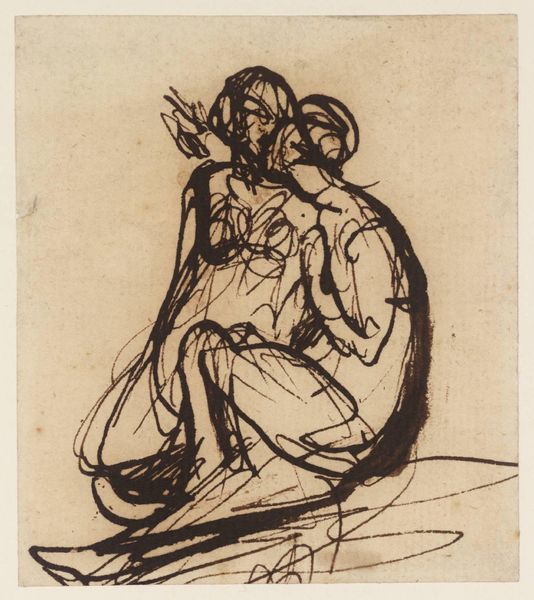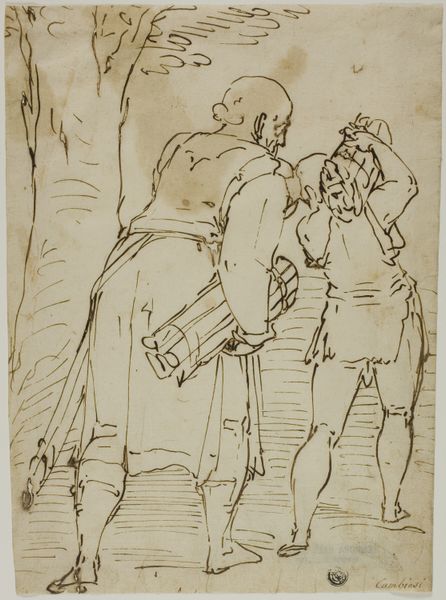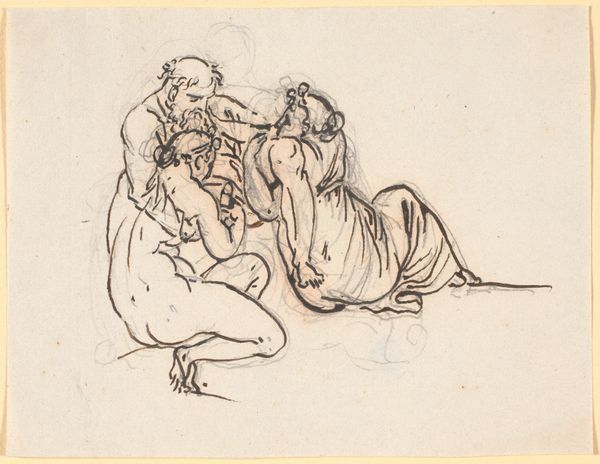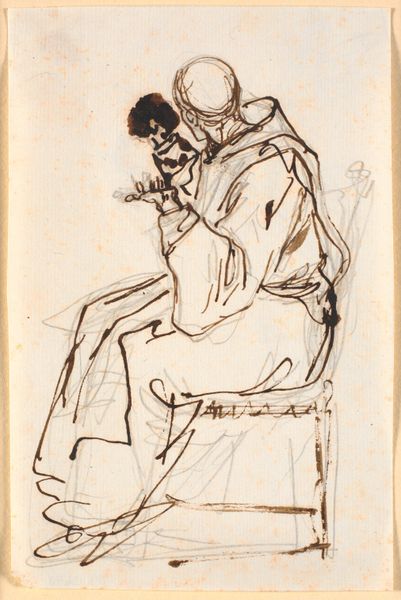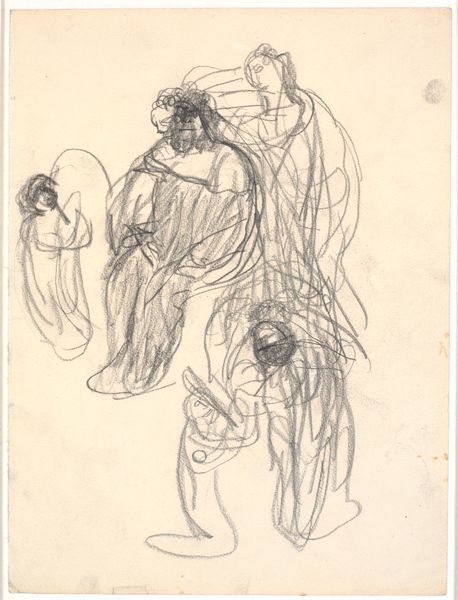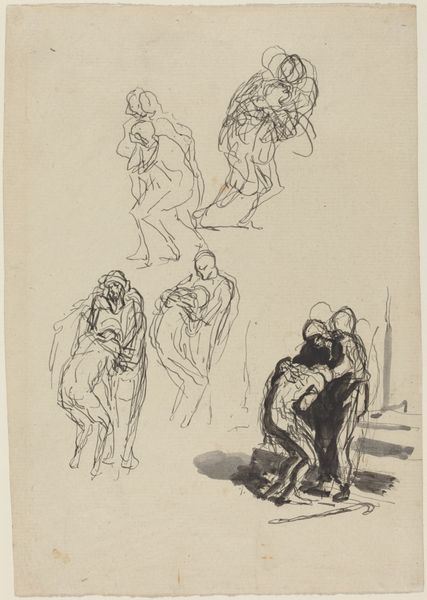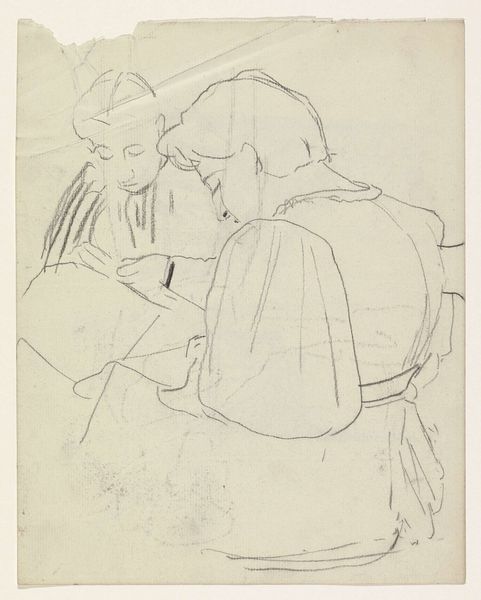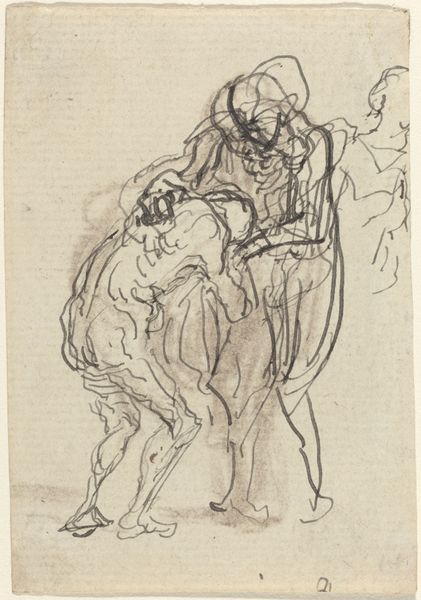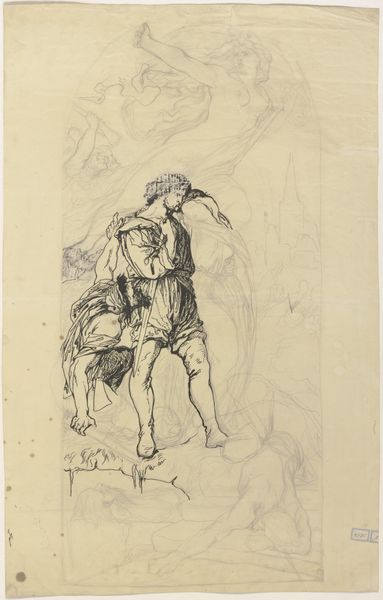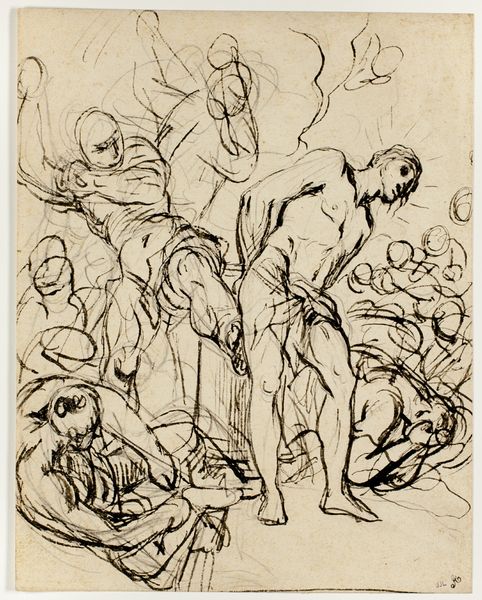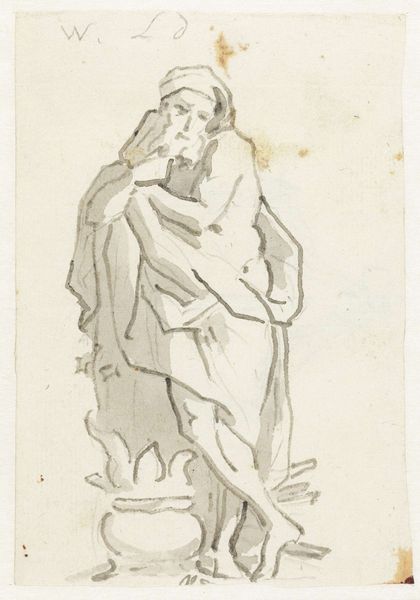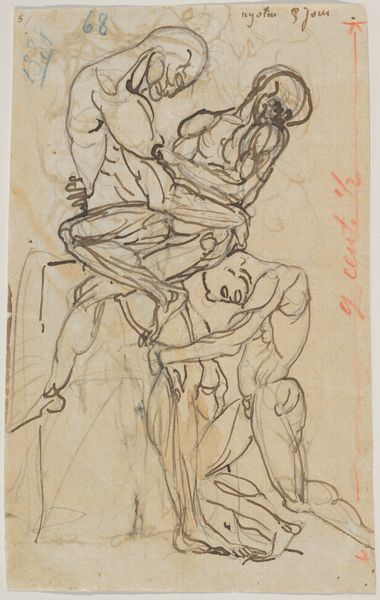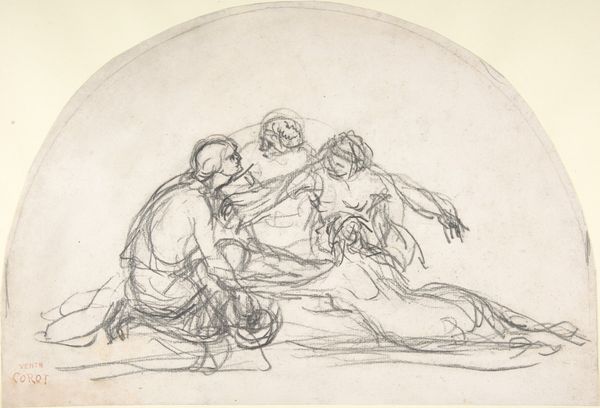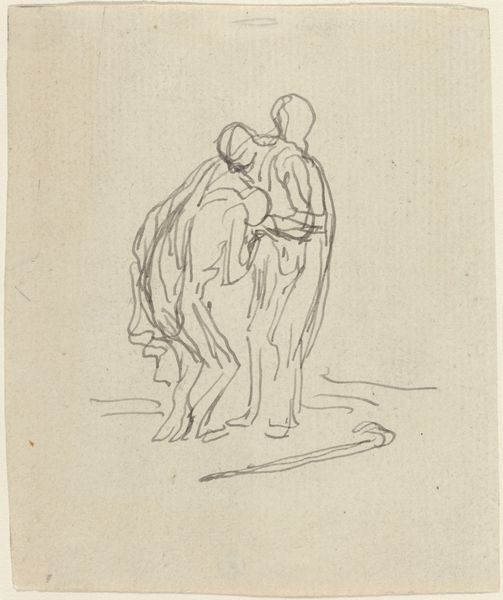
drawing, paper, ink, pen
#
drawing
#
narrative-art
#
pen sketch
#
pencil sketch
#
figuration
#
paper
#
ink
#
pen-ink sketch
#
pen
#
modernism
Copyright: Public domain
Editor: Here we have Thèophile Alexandre Steinlen's ink drawing, likely from 1918, called "Soldier's Departure." It feels incredibly raw and emotional; the lines are so immediate and kind of frantic, really conveying a sense of urgency and despair. What kind of deeper story do you think is going on here? Curator: What catches my eye immediately are the repeated figures, almost like echoes. A tight embrace on the left suggests farewell, but then you see a lone figure on the right, hunched and seemingly defeated. Do you notice how the child stares out, almost accusingly? This work captures not just departure, but a psychic landscape of trauma. Editor: Trauma...that's a powerful word. I was seeing it as sad, but maybe missing the longer-term impact. The repeated figures almost like memories replaying themselves? Curator: Exactly. The "echoes" can symbolize how war reverberates through generations, both a present moment of pain and a lingering presence in the family’s memory. Ink lends itself well to that, doesn’t it? Quick, immediate, hard to erase. Do you think it is glorifying war or something different? Editor: No, no glory at all. It feels very personal and anti-heroic. Looking again at the hunched figure you mentioned... it reminds me of war memorials that are far more human. Is that maybe a fallen soldier returning home? Curator: Perhaps a broken spirit returning home, changed and wounded. Steinlen isn't presenting an idealized soldier, but a victim of war. He uses universally understandable images – the hug, the child's face, the bowed head– allowing the work to bypass language. It's a lament accessible to all. Editor: I never considered how deliberate those image choices might be. It makes me see how artists can communicate very complex, lasting ideas with just a few lines and well-chosen symbols. Thank you for sharing this piece from the iconographic view. Curator: And thank you for noticing the feeling first. It's from that point that all true investigation begins.
Comments
No comments
Be the first to comment and join the conversation on the ultimate creative platform.
